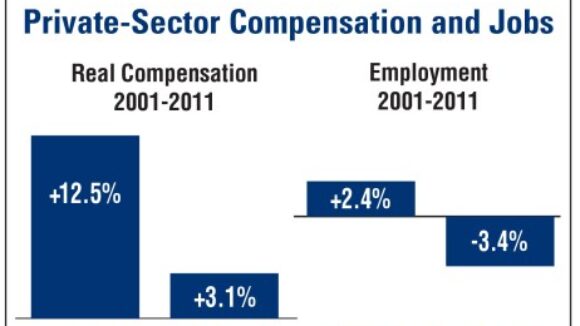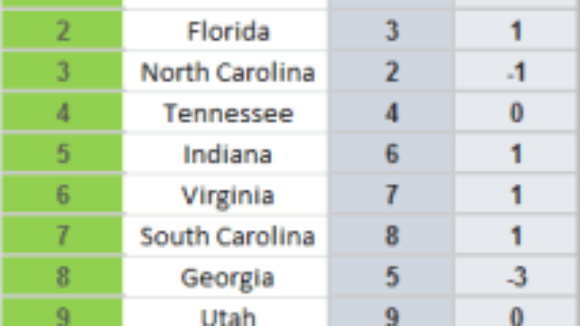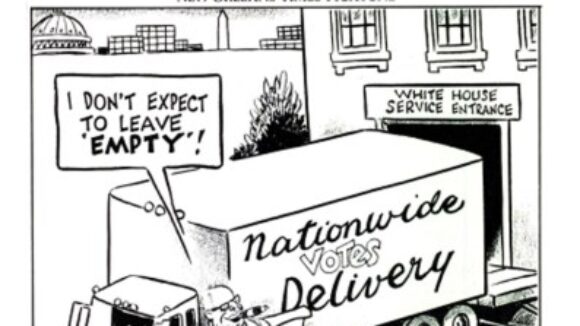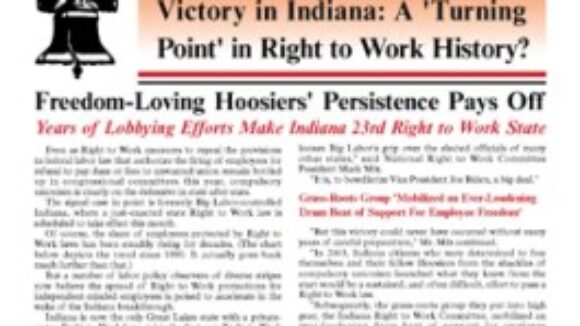Right to Work States Enjoy 'Growth Advantage'
Compulsory Unionism Negatively Correlated With Compensation Growth (source: National Right To Work Committee April 2012 Newsletter) By prohibiting compulsory union dues, state Right to Work laws spur the growth of private-sector employee compensation in the form of wages, salaries, benefits and bonuses, as well as employment growth. Last month, the U.S. Commerce Department's Bureau of Economic Analysis (BEA) issued its estimates for 2011 state personal income. The BEA also issued estimates for an array of specific kinds of income, including employee compensation, at the state level. The 2011 BEA income data in general, and the compensation data especially, show once again that there is a strong negative correlation between compulsory unionism and economic growth. Overall, private-sector employee compensation (including wages, salaries, benefits and bonuses) grew by 6.4% nationwide over the past decade, after adjusting for inflation. Historically speaking, this was slow growth. However, states that protect employees from being fired for refusal to pay dues or fees to an unwanted union typically fared far better than the rest. (From 2001 to 2011, 22 states had Right to Work laws prohibiting forced union dues on the books. Last month Indiana became the 23rd Right to Work state.) A review of how compensation and jobs grew (or failed to grow) in each state suggests the U.S. Congress could dramatically improve America's economic prospects for the next decade by repealing forced union dues and fees nationwide. Current federal law authorizes and promotes the payment of compulsory union dues and fees as condition of getting or keeping a job. Right to Work States' 2001-2011 Compensation Increase Nearly Double the National Average






